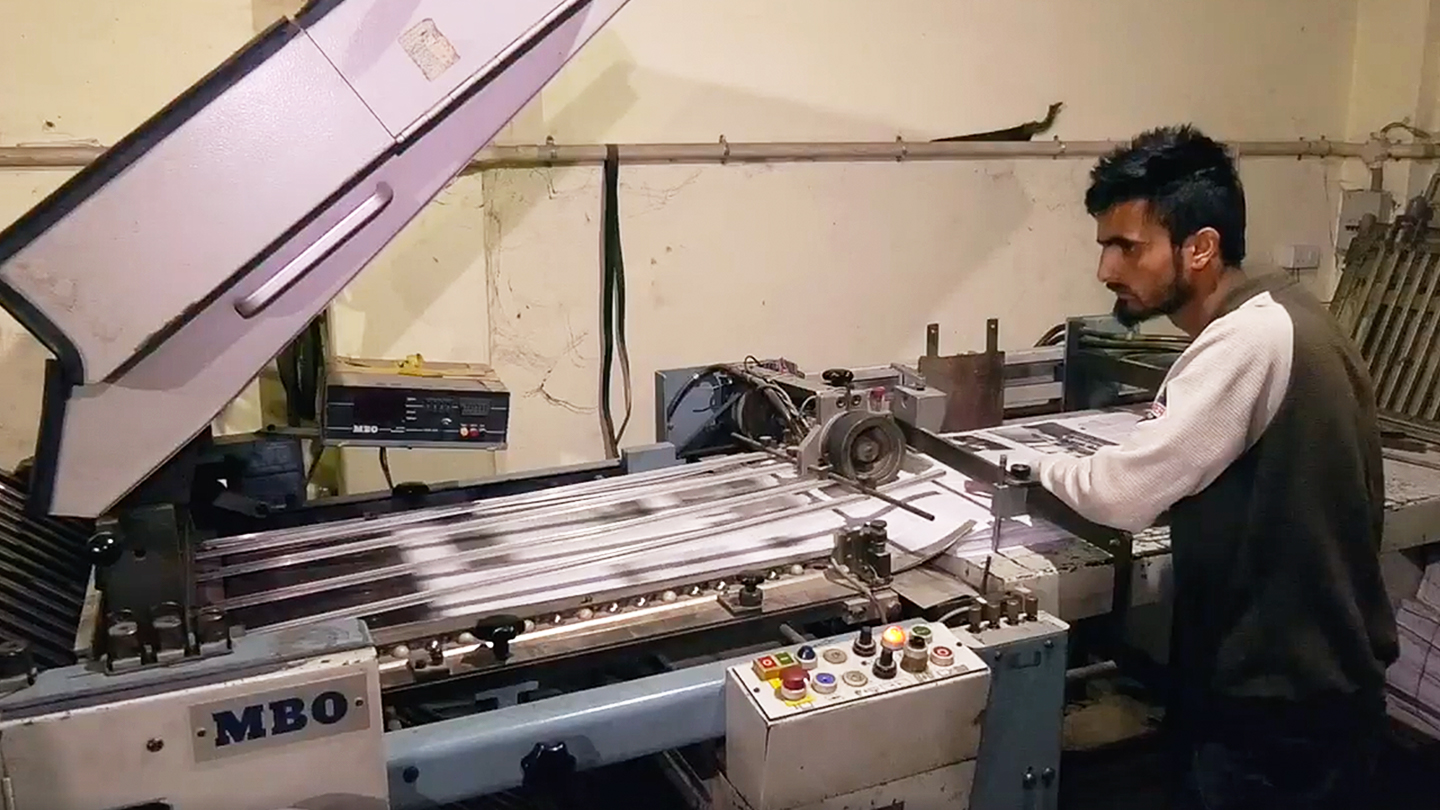These Reporters Won’t Let Kashmir’s Internet Blackout Stop Them

Credit to Author: Angad Singh| Date: Fri, 25 Oct 2019 13:40:13 +0000
SRINAGAR, Kashmir — For the past two months, a government-imposed communications blackout has largely prevented journalists from calling sources, emailing editors, and doing basic fact-checks.
Forget about actually posting a story on the internet.
The only way to get online is at a government media center, where there are nine computers for hundreds of reporters.
Against these odds, Fahad Shah, editor in chief of weekly newsmagazine “The Kashmir Walla,” has uncovered new truths: that children aren’t going to school, that the fire department isn’t working properly, and that a 14-year-old boy was arrested at his home late at night.
But because he can’t contact the distributors who deliver the paper to shops across the valley, Shah is only printing about a quarter of what he used to and doesn’t know if anyone is reading his stories.
The blackout was imposed shortly after India’s ruling Hindu Nationalist party’s Aug. 5 revocation of the special autonomy given to India’s only Muslim majority state.
Fearing a backlash in Kashmir, which has been home to a seperatist movement and Pakistani-backed insurgency for three decades, authorities shut off Internet and phone services to the nearly seven million residents of the valley.
Shah said the inability to communicate is only one of many obstacles to reporting in the state.
“There is a shadow under which the Kashmiri journalists are working,” Shah said. “It is made up of the pressure from the authorities. It has threats from local public who do not see eye to eye with journalists or the press. It has threats from the militants.”
Indian leaders have cited threats of “externally aided terrorism” to justify the communications ban, but journalists are warning that months-long outages are perpetuating cycles of misinformation which could just lead to more unrest.
“The press in Kashmir should have more access should have more rights,” Shah said. “That is when you will be able to control the rumors, rather than having distorted narratives, which create further chaos.”
Last week, India announced that it would restore service to some mobile phone plans, but continues to block text messaging and the internet. It’s also stalled on repeated requests by journalists to restore web access in their offices.
“It shows the style of functioning of Prime Minister Narendra Modi, that he is authoritarian and fascist. He just wants to curb the freedom of expression, that’s it,” said Ishfaq Naseem, a freelance journalist in Kashmir who writes for international publications told VICE news.
Shah, who lives in a neighborhood where anti-government protests happen each Friday, has witnessed first-hand how the lack of communications has fueled anger.
“I'm sure people living all across having been recording and they will start sharing that. More and more videos and information will start pouring out,” Shah said. “I think it is the fear of that, that the communication blockage still continues.”
Edited by Rachel Win.
Cover: Fahad Shah, editor in chief of weekly newsmagazine “The Kashmir Walla,” at the printing press.
This article originally appeared on VICE US.